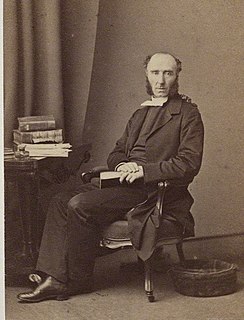A Quote by Henry David Thoreau
A true politeness does not result from any hasty and artificial polishing, it is true, but grows naturally in characters of the right grain and quality, through a long fronting of men and events, and rubbing on good and bad fortune.
Related Quotes
What intrigues me is that people kind of naturally want to label or pigeonhole the characters. They want to make it easy for themselves to go, "All right. There's the good guy, there's the bad guy, there's the girl. Okay, I get it now." But life isn't one-dimensional. The world isn't simply divided into good versus evil. I think we're all capable of both. So any time the hero does something I'm not crazy about, or the bad guy does something I can relate to, I'll find it more interesting.
What I "discovered" was that happiness is not something that happens. It is not the result of good fortune or random chance. It is not something that money can buy or power command. It does not depend on outside events, but, rather, on how we interpret them. Happiness, in fact, is a condition that must be prepared for, cultivated, and defended privately by each person. People who learn to control inner experience will be able to determine the quality of their lives, which is as close as any of us can come to being happy.
He held up a book then. “I'm going to read it to you for relax.” “Does it have any sports in it?” “Fencing. Fighting. Torture. Poison. True Love. Hate. Revenge. Giants. Hunters. Bad men. Good men. Beautifulest Ladies. Snakes. Spiders... Pain. Death. Brave men. Cowardly men. Strongest men. Chases. Escapes. Lies. Truths. Passion. Miracles.” “Sounds okay,” I said and I kind of closed my eyes.
[When anything happens, we interpret it as good or bad, but...] We do not know what is really good or bad fortune. [Only the future can decide. For example, what appears to be bad today may in fact lead us to a greater good tomorrow and by the very act of thinking and planning in that positive way, we can help make that good future come true.]
The greatest want of the world is the want of men - men who will not be bought or sold; men who in their inmost souls are true and honest; men who do not fear to call sin by its right name; men whose conscience is as true to duty as the needle to the pole; men who will stand for the right though the heavens fall.
The greatest want of the world is the want of men - men who will not be bought or sold, men who in their inmost souls are true and honest, men who do not fear to call sin by its right name, men whose conscience is as true to duty as the needle to the pole, men who will stand for the right though the heavens fall.
What you think upon grows. Whatever you allow to occupy your mind you magnify in your life. Whether the subject of your thought be good or bad, the law works and the condition grows. Any subject that you keep out of your mind tends to diminish in your life, because what you do not use atrophies. The more you think of grievances, the more such trials you will continue to receive; the more you think of the good fortune you have had, the more good fortune will come to you.
Apart from the positive woes of perdition, an eternity of wretchedness grows from the want of love to Christ as naturally as the oak grows from the acorn, or the harvest from the scattered grain. It is not that love to Christ merits heaven; it does far better, it makes heaven. It is, as it were, the organ of sensation that takes note of heaven's blessedness.
Experiences such as, 'I went; I came; I was; I did,' come naturally to everyone. From these experiences, does it not appear that the consciousness 'I' is the subject of those various acts? Enquiry into the true nature of that consciousness, and remaining as oneself, is the way to understand, through enquiry, one's true nature.
On the whole, men are more good than bad; that, however, isn't the real point. But they are more or less ignorant, and it is this that we call vice or virtue; the most incorrigible vice being that of an ignorance that fancies it knows everything and therefore claims for itself the right to kill. The soul of the murderer is blind; and there can be no true goodness nor true love without the utmost clear-sightedness.


































